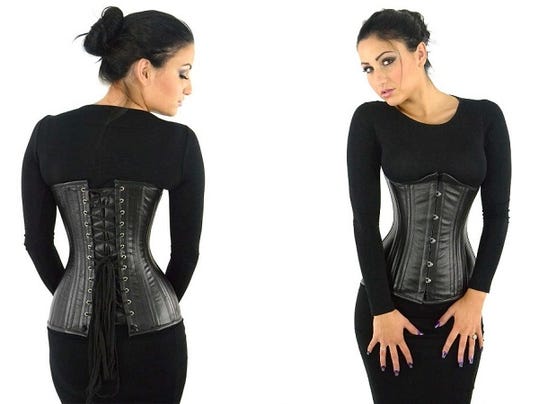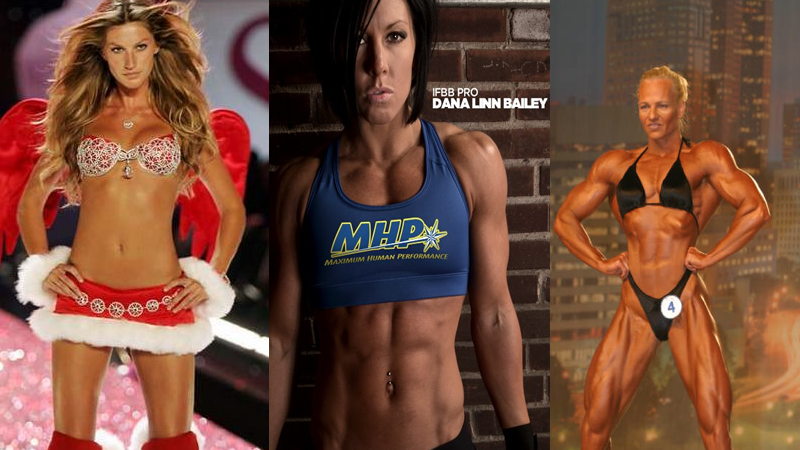Internalized Misogyny: Stopping Girl on Girl Hate
I think it’s safe to say we all know what sexism is, right? When a woman doesn’t get hired because of her gender, or when a mechanic charges a woman more for his services because she “doesn’t know anything.” Unfortunately, there are more insidious types of sexism, and when they are spouted by women they become what’s called internalized misogyny. Need some examples? Do you have a female friend that thinks she’s cooler/better/smarter/etc. than other women because she doesn’t do “girly” things? Or a female friend that says she’d rather hang out with guys because they’re “less drama”? (Read a history book, bro) What about the woman who scolds other women who are emotional, like it’s a flaw?

Tina Fey had a poignant moment in Mean Girls where she discussed girl-on-girl hate.
These are examples of internalized misogyny. It’s the sexism we hear every day and we start incorporating into our own lives. The idea is to reject the feminine as “bad” and “weak” in an attempt to be the opposite -strong. Like a man.
I know what you’re thinking. “That’s fine and dandy, Courtney, but what does this have to do with fitness?”
Everything.
I’m going to take a huge, huge problem in this post an examine it through a smaller lens: memes. We can all agree that we’ve seen a meme or two in our life, probably posted one, probably laughed about it. Memes are a cultural phenomenon that speak volumes to the way we think about certain classes in society.
Now, let me take you down the “Wall of Shame” for just a second.
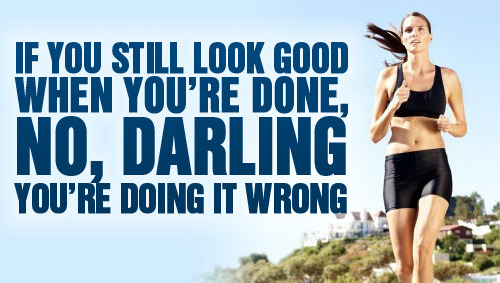
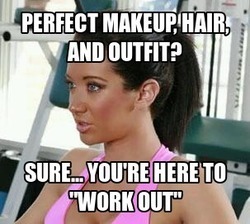 Ah, yes, a very typical meme. You’ve probably heard this before from a friend on Facebook or at the gym. “Who does she think she is – wearing MAKEUP to the gym?! Doing her hair?! Doesn’t she know she’s here to WORK OUT? LIKE ME? I WORK SO HARD.” This is an underlying theme in a lot of these memes – girl on girl crime/hate. The recurrent theme is
Ah, yes, a very typical meme. You’ve probably heard this before from a friend on Facebook or at the gym. “Who does she think she is – wearing MAKEUP to the gym?! Doing her hair?! Doesn’t she know she’s here to WORK OUT? LIKE ME? I WORK SO HARD.” This is an underlying theme in a lot of these memes – girl on girl crime/hate. The recurrent theme is
- Girls as competition – if another girl is doing better/more than you/looking better than you/etc. she is competition in a bad way. She should be torn down at all costs. She lifts more than you? Yeah, well she’s ugly. She runs faster than you? Well, good, she has no life, she needs something in her life.
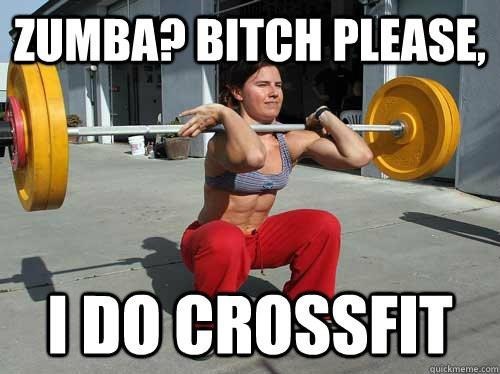
These “better than x” posts are also very common too. The recent popularity of Crossfit has brought a ton of women into the lifting community – which is great! For far too long many of us have been the only girl at a powerlifting meet, or maybe were met with strange looks when we explain that we put hundreds of pounds on our back and squat it. With this came the barrage of “better than x” ideas. Suddenly doing something “masculine” like lifting heavy weights makes them better than you. Again – girl on girl hate. “Haha you dance for an hour? WELL I LIFT WEIGHTS FOR AN HOUR SO I’M BETTER!” This is the equivalent of the girl who says “The Bachelor? Gag. I’d rather watch Sports Center!” There’s nothing wrong with enjoying something “out of the norm” but the minute you put down another woman for her preferences (which are “typical female” preferences) you’re furthering this girl on girl hate.
And men, you’re just as guilty of this! Here are some memes that I’ve seen posted by men AND women alike.
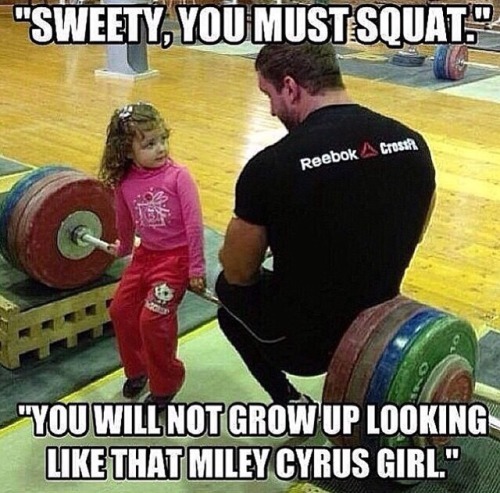
Yes, please never grow up to be a multi-million dollar pop star that enjoys things. Cultural appropriation aside, that’s an entirely different discussion.

Large boobs are not optional. Also insert endless “MY FRIDAY NIGHT AT THE BAR HAHA” and “GOING DOWN LIKE A SQUAT NOT LIKE A SLUT” memes
Do you see a theme here? Most of these are trying to empower a certain type of woman by tearing down another – and usually solely based on looks. Don’t believe me?
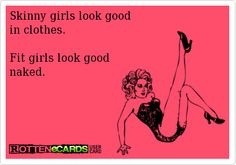
You can run a marathon? Who cares you don’t have 10% body fat haha!
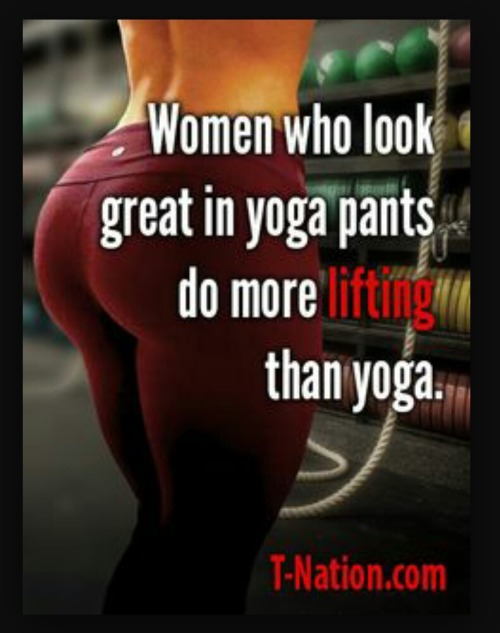
I know science is hard, but genetics…I mean really. And photoshop. OH GOD PHOTOSHOP.
Every time you say something about “that girl” who works out and drinks.
Every time you tear down a woman for wearing makeup or doing her hair before the gym.
Every time you put one type of “non-traditional” exercise over another.
YOU are contributing to a world of GIRL ON GIRL hate. These memes often have a deeper, darker motive as well. Sure, on the surface they may seem motivational, but they actually reinforce a gender norm a lot of these women try to steer clear of. Notice how all of these women are skinny, white and conventionally attractive? These women all embody what is conventionally attractive to the modern man (and please, let’s keep the #notallmen to a minimum). A big, firm butt, low body fat, white, etc. These memes reinforce the current beauty standard under the disguise of a new, “healthy” one. Don’t believe me?
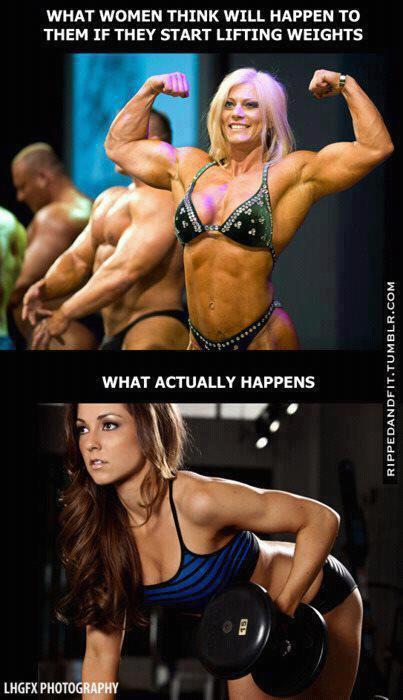
Lift hard and heavy! …but only to an extent, that’s gross, right?
Re-affirming conventional beauty standards. If these memes were REALLY about “internal strength” or “Bettering yourself” they’d focus a range of body types and skin colors. They would show the top woman and say, “Suns out guns out!” or “Work hard, play hard!” or whatever other catchy saying currently spewed by fitness people. Instead they work to tear down women who stray from the idea of what’s “accepted.” And don’t be too shocked by the comments on these pictures – women and men alike will tear down the top image. Post a picture of Dana Linn Bailey on Facebook and wait and count how many people (women included) tell you “not to get that big” or read her countless “Ew you’re a man!” comments.
So, basically, when you post these memes you’re 1) reinforcing the beauty norm, 2) tearing down other women (you don’t think that top girl has seen this image before? How do you think she feels?), 3) negating the hard work of the individual…just to name a few.
A lot of girl on girl hate, right?
(And, on a tangent, how many of these memes are thinly veiled thinspo? How many of these reinforce guilt about food and eating disorder ideas – which is a predominantly woman’s issue? Yeah.)
So – what can you do?
- Build other women up – don’t tear them down. Find your competition and praise her for her strengths. Find a sisterhood in your shared struggle.
- Call out other women for their internalized misogyny. “I don’t understand why the hair style of the girl on the treadmill has anything to do with your workout?” or “Maybe she likes pink nail polish, why do you care?”
- Accept that not everyone wants to do Crossfit or lift weights and some women just like to dance with their friends, or cycle, or run. And remember it has NOTHING to do with you.
- Praise other women. Lift them up. Empower each other in EVERY facet of your life. Other women are NOT your competition and if they’re doing “better” than you it’s not a personal affront to you.
- Don’t post this garbage.
